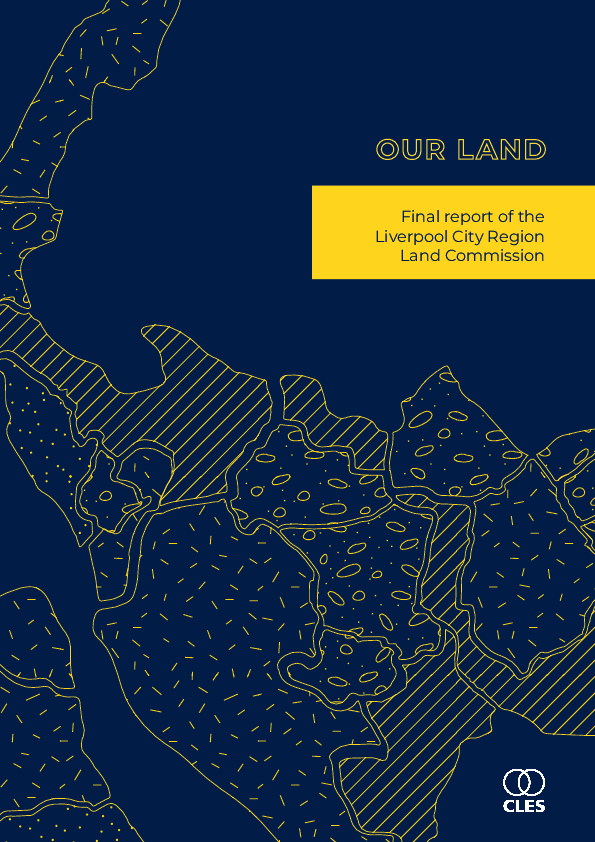Our Land
Today we launch the final report of the Liverpool City Region Land Commission: Our Land. Reflecting the findings of England’s first Commission to review the use of land for community wealth building, the report argues that a new approach to land should put communities, not profit, at its heart. Below, CLES’s Isaac Stanley reflects on the Commission’s nimble approach and the radical recommendations found in the report.
The Liverpool City Region Land Commission was launched in September 2020, at the initiative of Metro Mayor Steve Rotheram. Facilitated by the Centre for Local Economic Strategies (CLES), the Commission gathered together thirteen experts on democratic land reform, ranging from activists involved in community land trusts, makerspaces and social enterprise incubation to academics and national planning policy reformers and international campaigners for the commons.
“make this the fairest and most socially inclusive city region in the country”
They were invited to “think imaginatively and come back…with radical recommendations for how we can make the best use of publicly-owned land to make this the fairest and most socially inclusive city region in the country”. This report, prepared by CLES, is based on the deliberations and contributions of the Commissioners and presents their key findings and recommendations.





